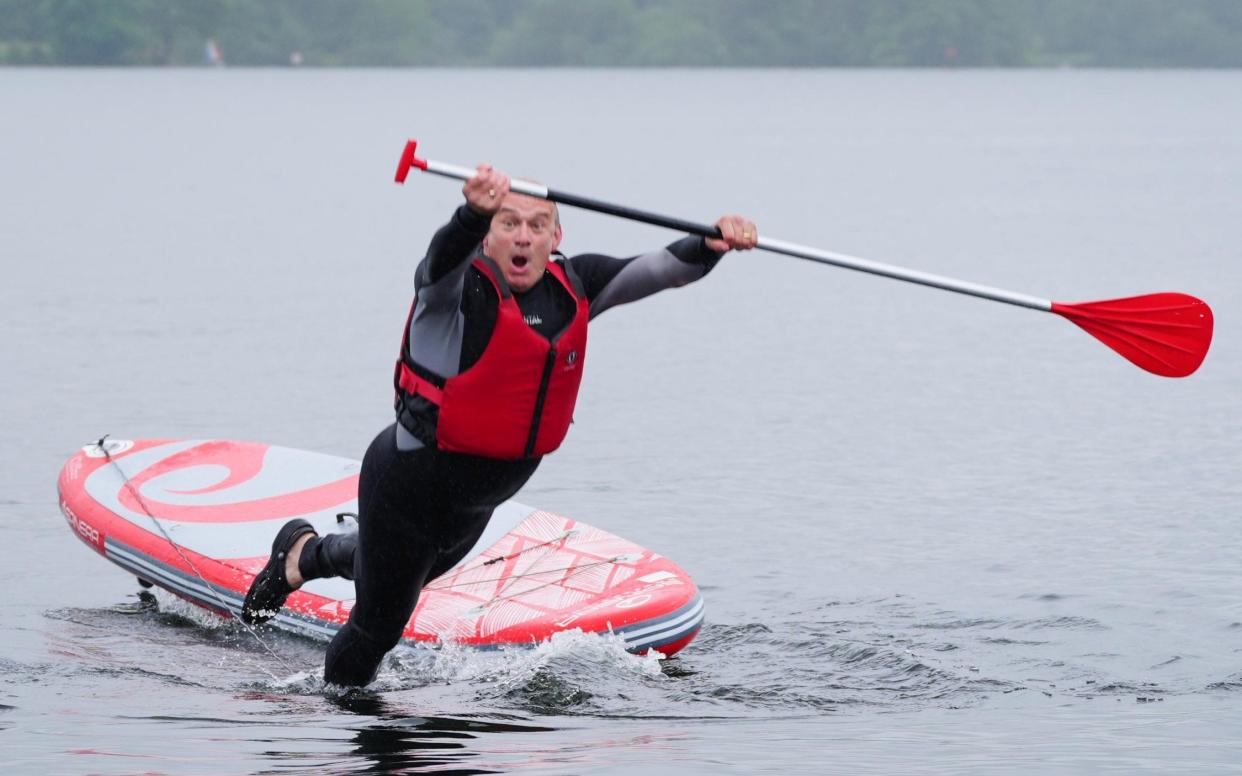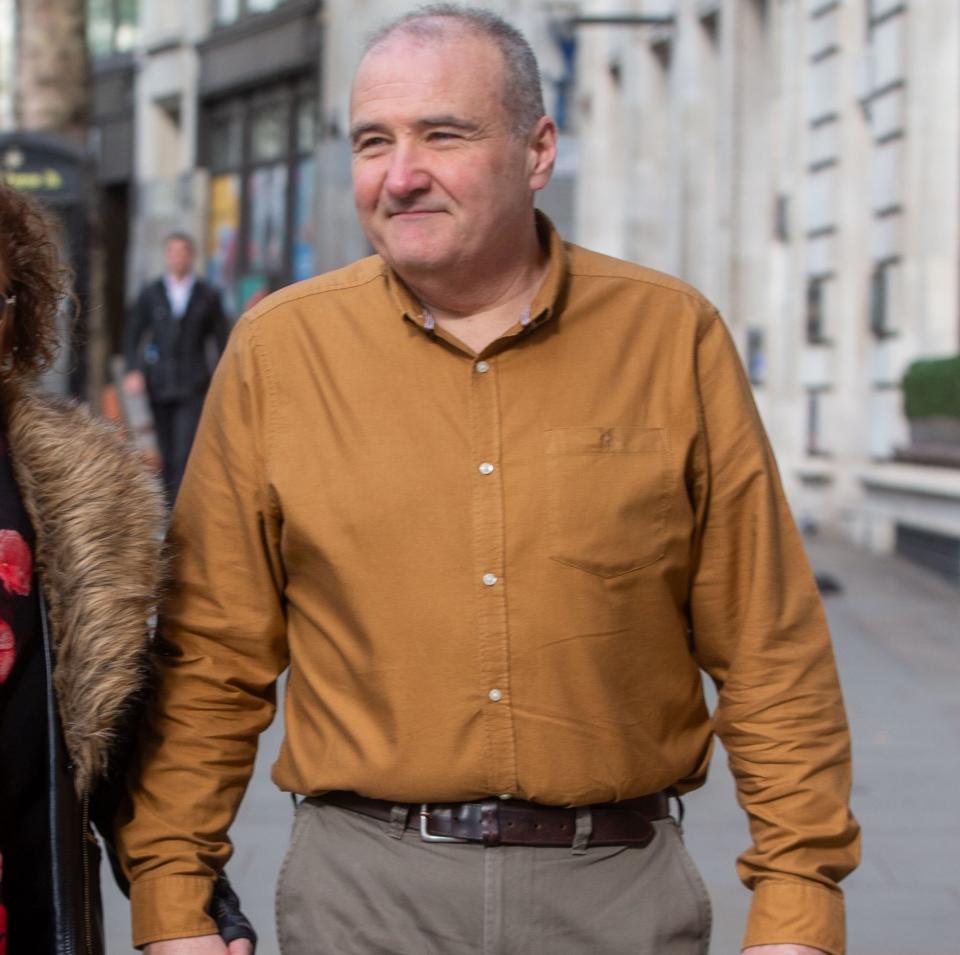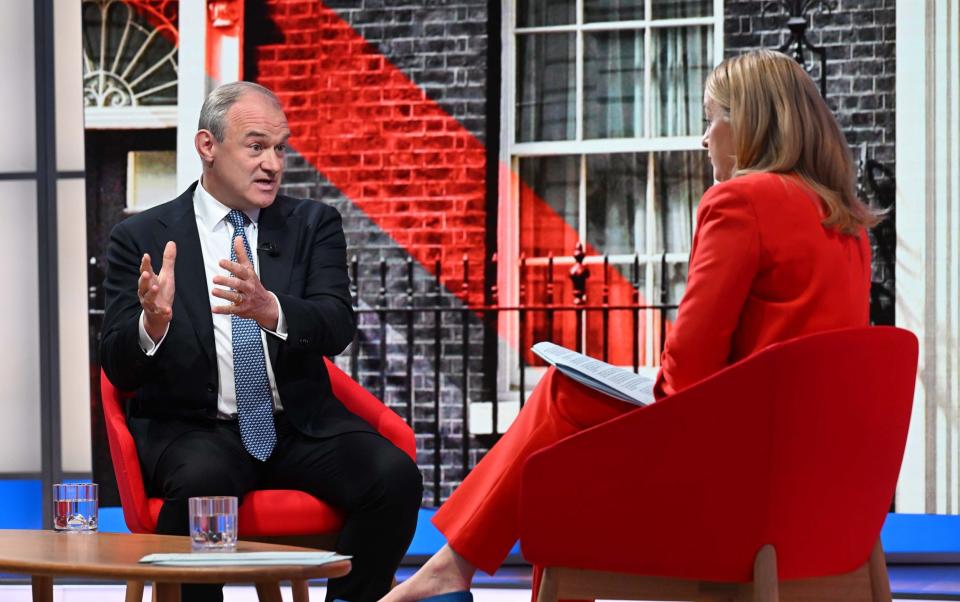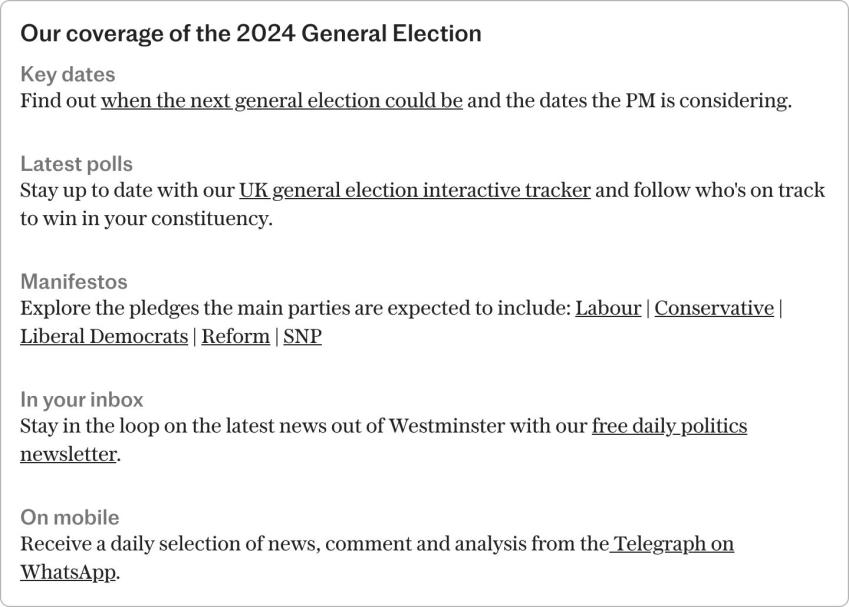Sir Ed Davey criticised for election ‘buffoonery’ by former sub-postmaster

A sub-postmaster who lost his livelihood in the Horizon scandal has accused Sir Ed Davey of “buffoonery” for his stunt-laden election campaign.
Lee Castleton compared Sir Ed’s photo opportunities to Boris Johnson’s, adding: “Trust is never going to be built by … paddleboarding in Cumbria.”.
Sir Ed has been criticised for not doing more to help wrongly convicted sub-postmasters when he served as postal affairs minister in the coalition government from 2010 to 2012.
He has previously apologised for failing to see through the Post Office’s “lies”, and has insisted he is taking voters’ concerns seriously despite campaign events including a visit to a theme park and a ride on a water slide.
More than 700 subpostmasters were prosecuted by the Post Office and convicted of criminal offences between 1999 and 2015 as Fujitsu’s faulty Horizon IT system made it appear that money was missing from their branches.

Mr Castleton, from Bridlington, East Yorkshire, was found to have a £25,000 shortfall at his branch in 2004, and was made bankrupt after he lost his legal battle with the Post Office.
On the subject of Sir Ed’s campaigning, he told the BBC’s Sunday Morning With Laura Kuenssberg: “I don’t particularly like the buffoonery, I find it very Boris-esque and I don’t think there’s any need for it.
“It’s really, really, really important that we trust him, and trust is never going to be built by swinging around on ropes or paddleboarding in Cumbria.
“Trust is about engaging with the people that need that engagement.”

Asked by Ms Kuenssberg if he was taking things seriously, Sir Ed replied: “On the sub-postmasters, my heart goes out to Lee and all the others so badly affected and I’m looking forward to giving evidence to the inquiry, which I campaigned for to hold people to account.
“But in terms of the things we’ve been doing, the stunts, actually the real issue is engaging people and they have done.”
He added: “We’re taking the voters’ concerns really seriously.
“That’s why we’ve put forward all these policy proposals and whenever we do one of those stunts to engage people – so I show that I’m not taking myself too seriously, I’m taking the voters seriously – we’ve had lots of policy ideas.
“So when I was going down that slide, we were talking about mental health.”
The Lib Dem manifesto proposes creating an “office of the whistleblower” to provide new legal protections for those revealing misconduct, and promote greater public awareness of their rights.
It also calls for “full and fair” compensation to be paid to all victims of the Horizon scandal “as quickly as possible”.
Concerns about the Horizon system were raised in 2000 by former sub-postmaster Sir Alan Bates, who was knighted in this year’s King’s Birthday Honours, while Computer Weekly magazine broke the story of seven sub-postmasters beginning their fight for justice in 2009.
Sir Alan recently criticised Sir Ed for initially refusing to meet him in 2010 about his campaign for justice. His disclosure led to calls from Tory MPs for the Lib Dem leader to stand down and hand back his knighthood.
Asked how people could trust him to do the right thing for whistleblowers, Sir Ed said: “The whistleblower was key in the Horizon scandal.
“We really only heard it in the Panorama programme by the BBC in 2015, quite a few years after I left office, and then in 2019 in the High Court case.
“That whistleblower from Fujitsu, an insider at Fujitsu, who said actually the Post Office had been telling lies to sub-postmasters, to ministers, to courts and judges, that whistleblower was crucial, as the ITV drama on Alan Bates showed.”
He added: “I was listening, I was the first minister to meet Alan Bates and I took his issues really seriously ... I put his concerns to the Post Office and I think I was probably the only minister who did that in that level of detail.
“And I was lied to – just like the sub-postmasters were lied to, just like the judges and the courts were lied to, and that’s why the whistleblower is so important.
“We have to change the system.”


 Yahoo News
Yahoo News 
